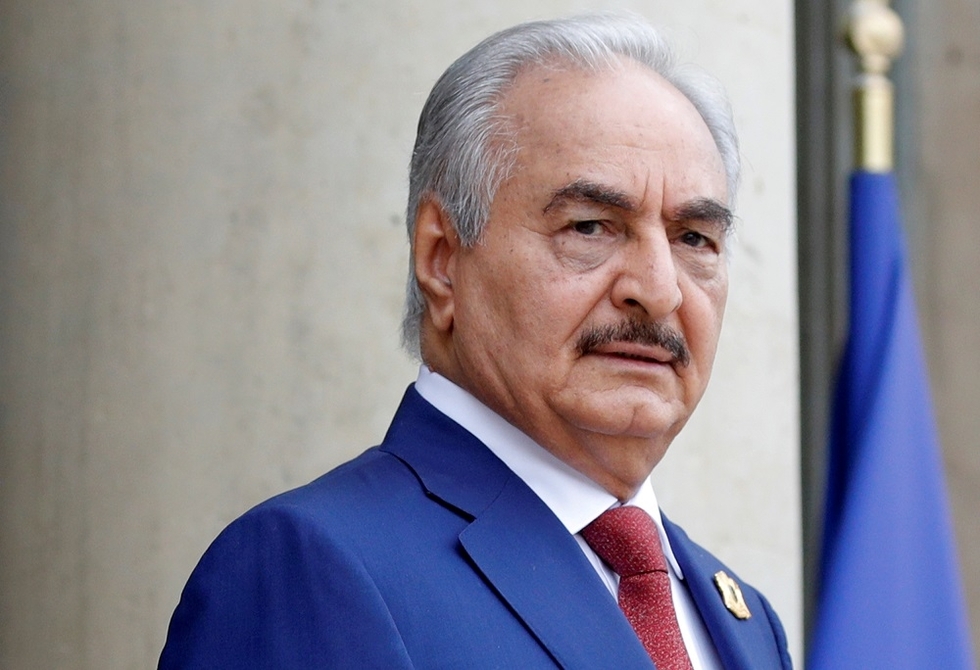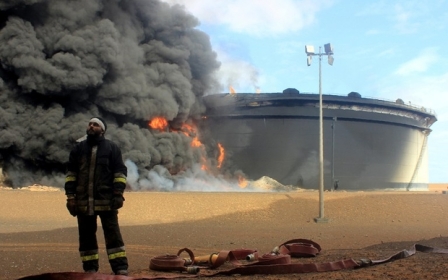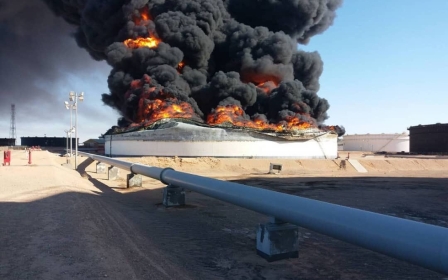Opposition denies Haftar in full control of Libya's besieged Derna

Local fighters in Derna have denied claims by Libyan military commander Khalifa Haftar on Thursday that his forces had fully captured the city of Derna, the last bastion of opposition to Haftar in the east of the country.
Haftar's forces, self-styled as the Libyan National Army (LNA), launched air and ground operations on the city last month after residents have suffered almost two years of siege warfare.
"Thanks be to God, the armed forces control the entire city of Derna," said a statement posted on the LNA's Facebook page.
Derna is known for the resilience of its people and has been a bedrock of resistance
- Libyan academic
Under Haftar's command, LNA forces have besieged Derna since 2016 in an effort to drive out fighters from the Derna Shura Council, which has controlled the city since ridding it of the Islamic State group in 2015.
However, the newly formed Derna Protection Force (DPF) - previously the Derna Shura Council - denied Haftar's claim, according to the Libya Observer.
Hamza al-Dernawy, a resident of Derna, described to MEE last year a city isolated by forces loyal to Haftar, and shops fast running out of food and medicine.
"Whoever attempts to leave is either kidnapped or subject to humiliation by the soldiers as they leave.”
The city is the last in eastern Libya to elude Haftar's control.
In a speech broadcast on Libyan television, Haftar, dressed in military uniform, congratulated his supporters for what he said was a victory against "terrorists".
Forces loyal to Haftar - one of a number of factions that have vied for power in Libya since a 2011 uprising ended Muammar Gaddafi's four-decade rule - have for years fought to gain control of the city, claiming the Shura Council is a "terrorist" organisation along the same lines as IS. The LNA commonly brands its rivals as terrorists.
"Today, the banner of terrorism is lowered by your victories, to be replaced by the banner of peace and tranquillity despite the terrorists and those who support them," Haftar said.
This announcement came as Haftar defied the internationally recognised Government of National Accord (GNA) based in Tripoli in handing over oil ports to his eastern allies. A parallel National Oil Corporation (NOC) had been set up in the east of the country.
The only recognised avenue for the sale of oil from the country is the official NOC based in the western capital, Tripoli. However, the parallel NOC in the east has a history of manipulating oil prices, according to NOC's chairman, Mustafa Sanallah.
But the Derna fighting could also undercut UN-led efforts to stabilise Libya by reconciling eastern-based factions aligned with Haftar and rival groups located in the country's more populous west.
The UN-backed unity government based in Tripoli has struggled to assert its authority outside the west, while Haftar has been the military figurehead for the eastern government based in Tobruk.
A Libyan academic wishing to remain anonymous told MEE last month: "Derna is the only city in the east that still supports the February Revolution [against the rule of long-time leader Muammar Gaddafi] and rejects [Haftar's] Dignity Operation and military rule."
The UN has warned of the devastating impact of the LNA besiegement and recent fighting on Derna's 125,000 residents. Aid workers have repeatedly been denied access to the city to deliver life-saving assistance and basic supplies, including medicine and food, according to the UN Support Mission in Libya (UNSMIL).
The academic said: "Derna is an important pocket for Haftar because it has a national and historical significance. Derna is known for the resilience of its people and has been a bedrock of resistance."
Haftar said on 3 May, at the start of the offensive, that he had given strict orders for civilians to be spared in the assault on Derna. However Human Rights Watch said previous statements did not prevent his forces “from inflicting significant casualties on civilians and mistreating them”.
New MEE newsletter: Jerusalem Dispatch
Sign up to get the latest insights and analysis on Israel-Palestine, alongside Turkey Unpacked and other MEE newsletters
Middle East Eye delivers independent and unrivalled coverage and analysis of the Middle East, North Africa and beyond. To learn more about republishing this content and the associated fees, please fill out this form. More about MEE can be found here.



